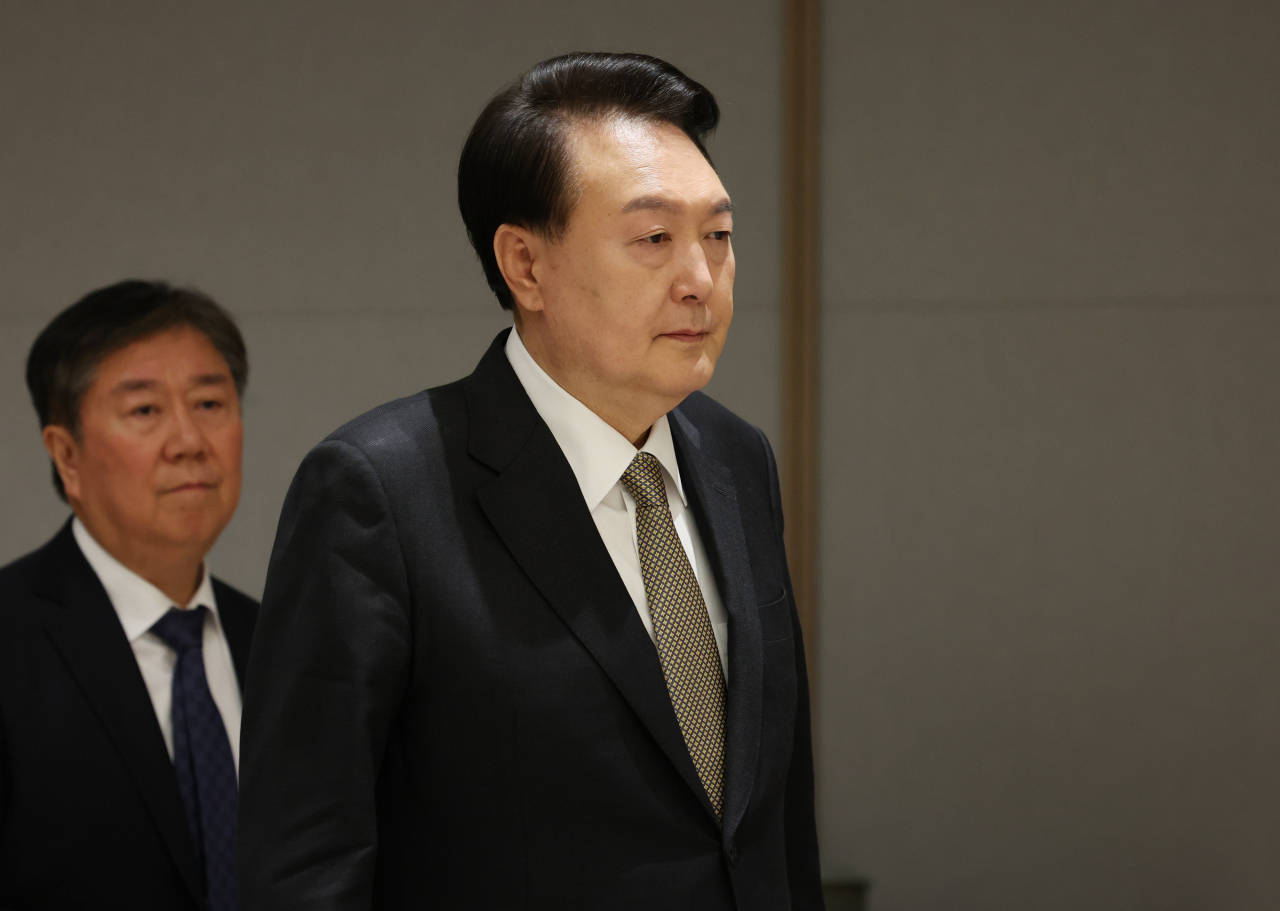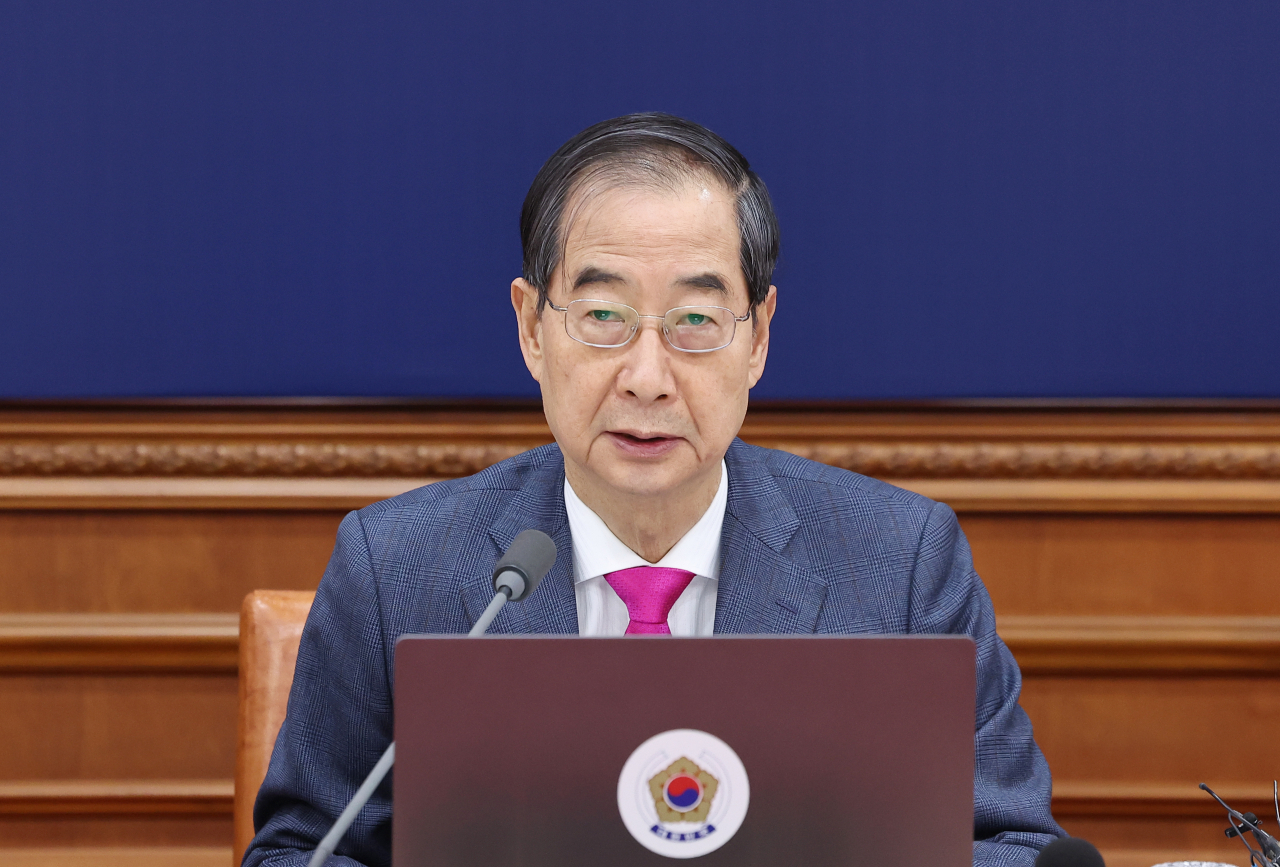Yoon vetoes contentious pro-labor, broadcasting bills
By Jung Min-kyungPublished : Dec. 1, 2023 - 17:21

President Yoon Suk Yeol on Friday vetoed a new pro-labor bill and three broadcasting law revisions passed by parliament last month.
Yoon's decision came mere hours after the Cabinet officially filed a request for him to reject the bills that were unilaterally passed by the National Assembly on Nov. 9, despite the ruling People Power Party’s strong opposition.
The opposition parties, including the main opposition Democratic Party of Korea, currently holds the controlling majority of seats in the Assembly, allowing them to pass motions without consent from the ruling party.
"President Yoon has officially approved the Cabinet's request to reconsider the revision bills regarding the Trade Union and Labor Relations Adjustment Act, the Broadcasting Act, the Educational Broadcasting System Act and the Broadcasting Culture Promotion Association Act," the presidential office said in a statement. The office has yet to release details behind Yoon's latest decision.
The pro-labor bill, also known as the “yellow envelope law,” sought to put a cap on the size of financial claims for damages that a company may file against labor unions. The existing law allows employers to file for damage compensation from illegal strikes against union members.
The new broadcasting bills called for less government intervention at local broadcasters. They also allowed for citizen intervention in reshaping the broadcasting companies’ governance structure.
Prime Minister Han Duck-soo questioned the “fairness” of the bills during a Cabinet meeting, and expressed regret over the opposition-controlled parliament’s decision.
“We have to ask ourselves whether the new bills actually represent the rights and needs of all laborers here, and support the fairness and independence of broadcasting companies,” Han said.
The labor bill could create confusion in the workforce and provide excessive room for unions to dodge punishment for their illegal actions, Han explained.
The bill stemmed from the Supreme Court’s decision to side with SsangYong Motors in 2014 regarding a controversial 77-day strike staged by the car manufacturer’s unionized workers in 2009.

Protesting against the company’s decision to cut 36 percent of its entire workforce, union members used slingshots, blunt objects and petrol bombs during the rally.
The court labeled the strike as illegal and ordered the union workers to pay a combined 4.7 billion won ($3.5 million) in compensation to the company and the state.
To aid the protesting union workers, civic activists and several members of the public delivered yellow cash envelopes containing money, which had to do with the name of the new labor bill.
Regarding the broadcasting bill, Han expressed doubt that the new rules would promote fairness in reshaping the broadcasters’ governance structures.
“There is a high possibility that the board could be filled with members seeking personal benefits, or benefits for a certain group,” he said.
The Democratic Party criticized the Cabinet’s decision, saying, “(It's) the wrong attitude for the government to adopt in rejecting bills supported by the majority of the public.”
So far, Yoon has vetoed a total of six bills led by the opposition. The first to be vetoed was the Nursing Act, which outlines the legal responsibilities of nurses; establishes appropriate working hours; and empowers them to demand improved treatment. The second was the revision of the Grain Management Act, which mandates the government to acquire surplus rice yields.



















![[Today’s K-pop] Treasure to publish magazine for debut anniversary](http://res.heraldm.com/phpwas/restmb_idxmake.php?idx=642&simg=/content/image/2024/07/26/20240726050551_0.jpg&u=)